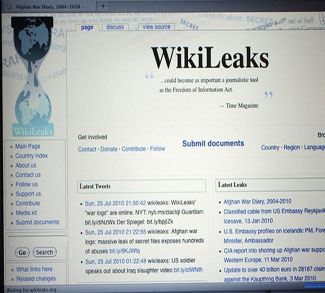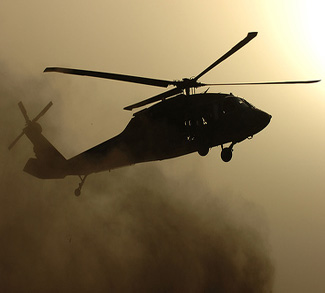Three massive bombings in quick succession would generally be cause for concern for a national leader. Paradoxically, for Syria’s Bashar al-Assad, they’re a sign that things are looking up.
Friday January 6th brought with it a sound that most Damascus residents are not familiar with, yet one that they will likely be hearing more and more: the sound of a bomb going off. When the dust had cleared, 26 people were dead. Syria’s beleaguered president was quick to point the finger at Al Qaeda, but the truth behind the bombings might not be so simple.
Good analysis tends to grow out of one simple question: who benefits? In this case, the answer is clear. A breakdown in Syria’s internal security situation is ideal for President Assad. For one, it harkens to the simple societal contract of ‘stability for autocracy’ that has buttressed Baath Party rule since 1963. The argument goes that if things start blowing up- hitherto a rare event in Syria- as soon as President Assad is threatened, perhaps his regime wasn’t so incompetent after all. Secondly and perhaps more importantly, the bombings allow the Assad regime to play up the bogeyman of violent Islamic fundamentalism. This has the added bonus of scoring diplomatic points with foreign audiences; they may have no choice but to curb their enthusiasm for toppling Assad’s regime out of fear of what would replace it.
If President Assad’s accusations are true and Al Qaeda is behind the Syria bombings, it truly is an organization that works in mysterious ways. After all, why wait until now to unleash a wave of bloody mayhem in Syria, especially when mayhem seemed to already be unleashing itself. The situation was already unfolding in such a way as to eventually allow Islamists a backdoor entrance into the political process ala the Muslim Brotherhood in Egypt. Remember, if Al Qaeda even has a stated goal per se, it’s to implement an agenda of fundamentalist politics in the Middle East. To attack now merely strengthens the hand of President Assad. It’s counter-productive.
Of course, you could believe the official line: Al Qaeda has been trying to launch successful attacks in Syria for decades, they’ve just been foiled at every turn by the heroic endeavors of Assad’s security apparatus; forces that are now too busy ‘pacifying’ protestors to maintain their longstanding vigil.
Or, you could conclude that the Assad regime is behind the bombings. Given the fact that 5000 people (UN estimates) have already been killed in the course of Syria’s ongoing anti-government protests, it’s not too much of a moral leap to sacrifice some bystanders in pursuit of the self-preservation. These kinds of accusations are by no means a revelation. Several Syrian opposition groups have been very vocal in their belief that the state security apparatus has been bombing its own people and putting the frame on Al Qaeda.
The truth behind the bombings will likely never be known. What will be revealed in due course however is their consequence. It’s quite possible that these bombings will one day be looked back upon as events that turned the political tide back in President Assad’s favor.
On the domestic level, the bombings and their resulting impression that internal stability is crumbling have already become rallying points for the president’s support base.
The post-Assad chaos narrative also impacts regional players, most notably the Arab League. In stark contrast to its previous Arab Spring diplomatic masterstrokes, the Arab League mission in Syria is sinking deeper into farce with every passing day. Even if expectations were low from the onset given the head appointment of a Sudanese general who earned his stripes in the moral void of Darfur, it’s definitely a bad sign when monitors begin to quit citing ‘scenes of horror’ that they’re unable to stop. In short, the Arab League may have bit off more than it can chew on this one and the post-Assad chaos narrative offers it a face-saving exit strategy.
Finally, this narrative could also resonate in international circles. Many Western governments don’t have the appetite to send their overstretched and increasingly cash-starved militaries on another foreign adventure- especially one that lacks the legitimizing stamp of the Arab League. In the end, they will decide it better to stick with the relative stability of the devil they know rather than risk the chaos of whatever political forces that manage to fill the vacuum.




